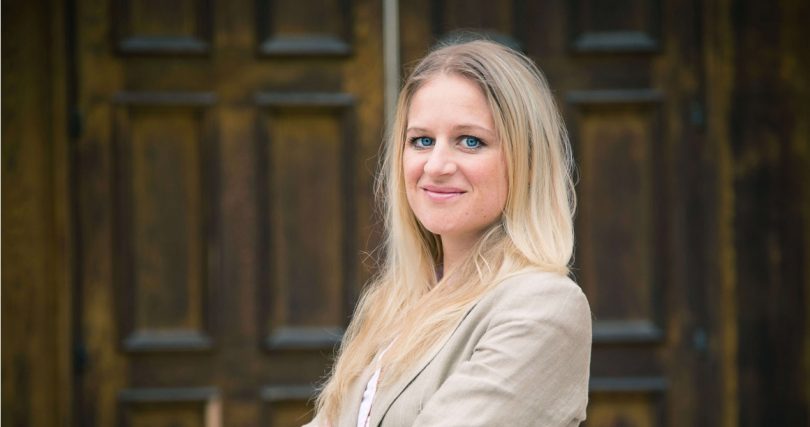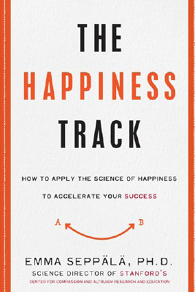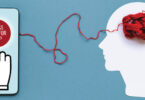On the home front or at work, ‘’Don’’t worry, be happy’’ may be the smartest ‘’success prescription’’ you can follow.
Reviewed by Allan Fallow
I’’m not exactly a nose-to-the-grindstone type——I’’d rather climb a mountain in Maine than the ladder of success——so I was thrilled to discover that The Happiness Track contains a chapter on “purposeful mind-wandering” called “Get More Done by Doing More of Nothing.” In it, a Nobel Prize-winning economist shares his opinion that creative insights come not from obsessive focus on a demanding task, but rather “from integration with more free-floating ideas and emotions that arise during leisure time, daydreaming, recollection of memories and other connections to your own internal world.”
And so, faced with a demanding task——reviewing Emma Seppälä’’s new business primer, subtitled How to Apply the Science of Happiness to Accelerate Your Success——I decided to connect with my “own internal world” by taking a nap. If her advice lacked merit, you wouldn’’t be reading this now.
My field experiment in powering down proved the wisdom of a key point in Seppälä’’s short but uplifting book——namely, that our single-minded preoccupation with achieving concrete results has deprived us of “the one thing that can help us succeed and truly be productive: nonlinear thinking and creativity.” The truth of the matter, Seppälä claims her research has revealed, is that “success depends in large part on unfocusing.”
Creative Idleness
Yes, there’’s a certain woo-woo quotient to her writing——Seppälä is, after all, the science director of a fuzzy-sounding outfit called the Center for Compassion and Altruism Research and Education at Stanford University——but before you object that “the unfocused mind pays no bills,” consider the pains this author has taken to ground her argument in utility. Throughout her chapter on “creative idleness,” for example, she sprinkles the sort of practical advice you’’d expect to find in a much more traditional business book:
- To diversify your daily activities, take a quick walk rather than checking your social media accounts, or organize your workday so as to alternate tasks requiring intense focus with more mindless ones.
- To make time for silence, try attending a daylong retreat devoted to hiking, wellness or meditation, or simply fold the laundry without simultaneously watching TV or talking on the phone.
- To reintroduce fun into your life, join an informal sports team, try a “laughter yoga” workshop or recruit a play partner.
Did some International Board of Happiness certify Seppälä as an expert in the discipline? I have no idea, but I can say the woman has got some serious “success cred.” Originally from Paris, she earned a degree in comparative literature from Yale, a master’s in East Asian languages from Columbia and a Ph.D. in psychology from Stanford. She also speaks five languages. Paradoxically, however, not until Seppälä witnessed some highly driven classmates pursuing and achieving success in all the wrong ways did she feel motivated to write The Happiness Track:
“”While I have been inspired by my colleagues as they launch nonprofits, get voted into Congress, write bestselling novels, become successful Broadway actors, found innovative startups, play major roles in humanitarian efforts across the world, and attain billionaire status as Wall Street bankers, I have also been saddened to see so many of these outwardly ‘successful’ people drive themselves into the ground and end up chronically stressed and unhealthy.””
Shift Out of Overdrive
By accepting overextension as a way of life, Seppälä believes, these and other actors——that is to say, the vast majority of us——have bought into the bankrupt notion that getting ahead means “doing everything that’’s thrown at us (and then some) with razor-sharp focus and iron discipline—and at the expense of our happiness.” Yet only by lightening up and giving ourselves a break—“—stepping out of overdrive,” as she puts it——can we hope to make happiness an attainable and sustainable goal.
Seppälä details her happiness prescription in six fast-moving chapters that will make you feel giddy, not guilty, about the prospect of stepping off the fast track. Vastly simplified, her formula for finding professional and personal contentment goes something like this: Live in the present; replace stress with resilience; discover the surprising power of calm; learn to chill out productively; show compassion to yourself; and show compassion to others.
If you’’ve been driving yourself mercilessly forward of late, I predict the author’s common-sense recommendations for removing burnout from your success formula will strike you as both a reprieve and a roadmap, a balm and a boon. Rather than eternally——and mulishly——straining against our harness, Seppälä suggests, what if we lifted our heads every now and then to acknowledge the bright sunshine and cool breeze of this beautiful day?
You Might Also Like…
[Baker Books]
208 pages/$14.74/hardcover
Design a simple and effective plan that looks at the bigger picture so you can get what you want in every aspect of life.
[St. Martin’s Press]
288 pages/$18.48/hardcover
Learn why a story can be an asset by looking at great storytellers in history, including Dr. Martin Luther King, Jr. and Steve Jobs.
[Portfolio]
256 pages/$17.94/hardcover
The seven-step guide to the art and science of how to close a deal, from a former Yahoo! executive.
[G.P. Putnam’s Sons]
320 pages/$16.24/hardcover
To achieve true happiness, you need to change the way you think about everything.









